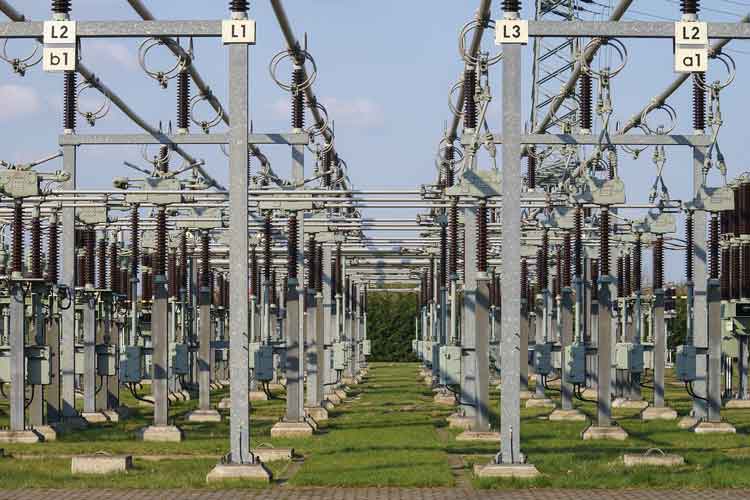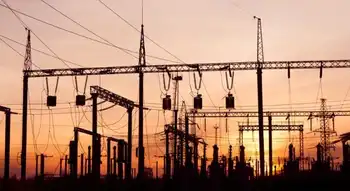Trump's Order Boosts U.S. Uranium and Nuclear Energy

Electrical Testing & Commissioning of Power Systems
Our customized live online or in‑person group training can be delivered to your staff at your location.

- Live Online
- 12 hours Instructor-led
- Group Training Available
Uranium Critical Mineral Reclassification signals a US executive order directing USGS to restore critical status, boosting nuclear energy, domestic uranium mining, streamlined permitting, federal support, and energy security amid import reliance and supply chain risks.
Key Points
A policy relisting uranium as a critical mineral to unlock funding, speed permits, and strengthen U.S. nuclear security.
✅ Directs Interior to have USGS reconsider uranium classification
✅ Speeds permits for domestic uranium mining projects
✅ Targets import dependence and strengthens energy security
In a strategic move to bolster the United States' nuclear energy sector, former President Donald Trump issued an executive order on January 20, 2025, directing the Secretary of the Interior to instruct the U.S. Geological Survey (USGS) to reconsider classifying uranium as a critical mineral. This directive aims to enhance federal support and streamline permitting processes for domestic uranium projects, thereby strengthening U.S. energy security objectives.
Reclassification of Uranium as a Critical Mineral
The USGS had previously removed uranium from its critical minerals list in 2022, categorizing it as a "fuel mineral" that did not qualify for such designation. The recent executive order seeks to reverse this decision, recognizing uranium's strategic importance in the context of the nation's energy infrastructure and geopolitical considerations.
Implications for Domestic Uranium Production
Reclassifying uranium as a critical mineral is expected to unlock federal funding and expedite the permitting process for uranium mining projects within the United States. This initiative is particularly pertinent given the significant decline in domestic uranium production over the past two decades. According to the U.S. Energy Information Administration, domestic production has decreased by 96%, from 4.8 million pounds in 2014 to approximately 121,296 pounds in the third quarter of 2024.
Current Uranium Supply Dynamics
Despite the push for increased domestic production, the U.S. remains heavily reliant on uranium imports. In 2022, 27% of U.S. uranium purchases were sourced from Canada, with an additional 57% imported from countries including Kazakhstan, Uzbekistan, Australia, and Russia; a recent ban on Russian uranium could further disrupt these supply patterns and heighten risks. This reliance on foreign sources has raised concerns about energy security, especially in light of recent geopolitical tensions.
Challenges and Considerations
While the executive order represents a significant step toward revitalizing the U.S. nuclear energy sector, several challenges persist, and energy dominance faces constraints that will shape implementation:
-
Regulatory Hurdles: Accelerating the permitting process for uranium mining projects involves navigating complex environmental and regulatory frameworks, though recent permitting reforms for geothermal hint at potential pathways, which can be time-consuming and contentious.
-
Market Dynamics: The uranium market is subject to global supply and demand fluctuations, and domestic producers may face competition from established international suppliers.
-
Infrastructure Development: Expanding domestic uranium production necessitates substantial investment in mining infrastructure and workforce development, areas that have been underfunded in recent years.
Broader Implications for Nuclear Energy Policy
The executive order aligns with a broader strategy to revitalize the U.S. nuclear energy industry, where ongoing nuclear innovation is critical to delivering stable, low-emission power. The increasing demand for nuclear energy is driven by the global push for zero-emissions energy sources and the need to support power-intensive technologies, such as artificial intelligence servers.
Former President Trump's executive order to reclassify uranium as a critical mineral, aligning with his broader energy agenda and a prior pledge to end the 'war on coal', signifies a pivotal moment for the U.S. nuclear energy sector. By potentially unlocking federal support, including programs advanced by the Nuclear Innovation Act, and streamlining permitting processes, this initiative aims to reduce dependence on foreign uranium sources and enhance national energy security. However, realizing these objectives will require addressing regulatory challenges, market dynamics, and infrastructure needs to ensure the successful revitalization of the domestic uranium industry.











